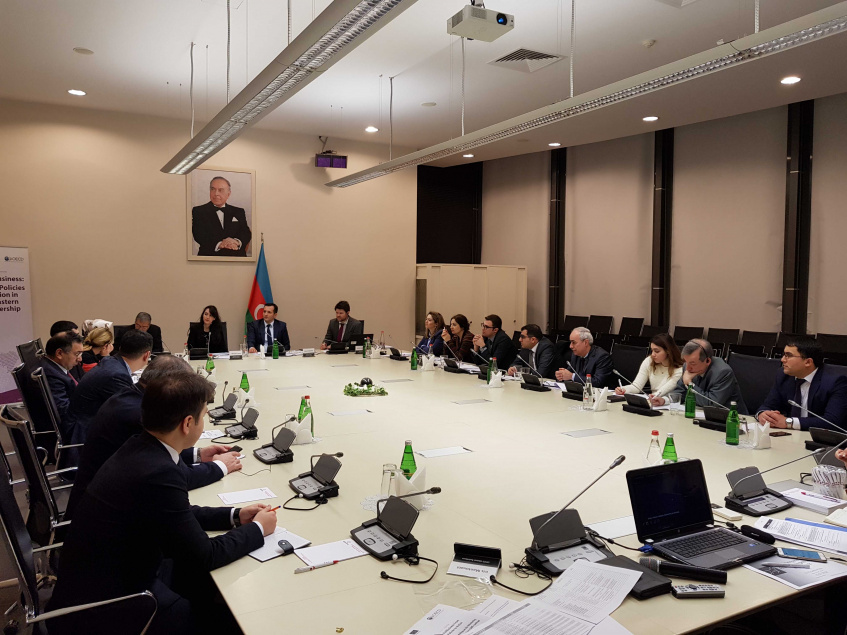
The OECD held a workshop on the monitoring of Azerbaijan's SME roadmap on 15 February 2018 in Baku, Azerbaijan. The meeting was part of the EU4Business project ‘From Policies to Action’.
The main objective of the workshop was to discuss and refine the process of monitoring the implementation of the SME roadmap including defined targets and key performance indicators (KPIs). Elchin Ibrahimov, Head of the Entrepreneuship Development Policy Department from the Ministry of Economy opened the event emphasising the relevance of the topic for successful SME policies.
Workshop participants and OECD experts discussed how the current monitoring system is organised, focussing on data collection and stakeholder co-ordination. Vusala Jafarova from the Centre for Analysis of Economic Reforms and Communication presented presented the proposal for a results-based monitoring framework, including the type of data that implementing agencies provide to the Ministry of Economy and the Centre for Economic Reforms Analysis and Communication.
Recommendations were provided on how to distribute tasks and ensure effective co-ordination between the Ministry of Economy and other state institutions. The session was concluded discussing practical examples of the SME roadmap, e.g. how to monitor the creation of business incubators.
A second session focussed more specifically on the targets and KPIs identified in the SME roadmap. The OECD shared good practices on setting meaningful KPIs, and provided inputs on how existing KPIs could be refined in areas such as SME internationalisation or access to finance.
The meeting was attended by the key stakeholders involved in the monitoring of Azerbaijan's SME roadmap, including the Ministry of Economy and the Centre for Analysis of Economic Reforms and Communication, as well as the EU Delegation, and the National Confederation of Entrepreneurs (ASK).
The EU4Business project ‘From Policies to Action’ is implemented by the OECD across all the countries of the Eastern Partnership region. The project supports competitiveness and business environment reforms, working both at country and regional level. At country level, the OECD provides tailored support in the design, monitoring and upgrading of strategies and programmes to support private sector development, evidence based policy making and broader business environment reforms. At regional level, the OECD stimulates reform implementation through peer reviews and regional policy dialogue. The OECD also monitors progress in the implementation of policy reforms, benchmarks performance and identifies future priorities for SME development.
